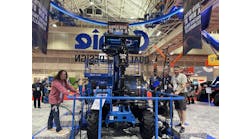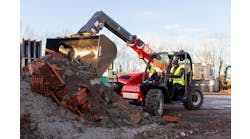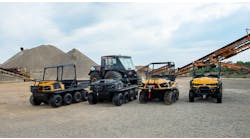Cummins Inc. last week announced the approval of biodiesel B20 blends for use in its 2002 and later emissions-compliant ISX, ISM, ISL, ISC and ISB engines. This includes the recently released 2007 products.
Cummins is able to upgrade its previous position on the use of biodiesel fuel, which limited the use to B5 blends only, up to B20 for three key reasons. First, the American Society of Testing Materials specification ASTM D6751 now includes an important stability specification for B100 biodiesel. Second, the availability of quality fuels from BQ-9000 Certified Marketers and Accredited Producers is growing rapidly; and third, Cummins has completed the necessary testing and evaluations to ensure that customers can reliably operate their equipment with confidence using B20 fuel, the company said.
“We have completed exhaustive analysis and test evaluations which enable Cummins to provide the necessary guidance and information to our customers for the proper and successful use of this fuel in our engine,” said Edward Lyford-Pike, chief engineer – advanced alternative fuel programs. “This will enable our customers to have a choice that includes renewable fuel.”
The popularity and use of biodiesel fuel continues to climb. According to Cummins, recent studies predict that, by 2008, 1.2 billion gallons of B100 biodiesel will be produced in the United States. Cummins plans to continue its efforts to ensure that future products will be compatible with biodiesel fuels, and says it will continue to participate in industry efforts aimed at the development of consistent quality throughout the biodiesel industry.
Columbus, Ind.-based Cummins is a corporation of complementary business units that design, manufacture, distribute and service engines and related technologies, including fuel systems, controls, air handling, filtration, emission solutions and electrical power generation systems.





